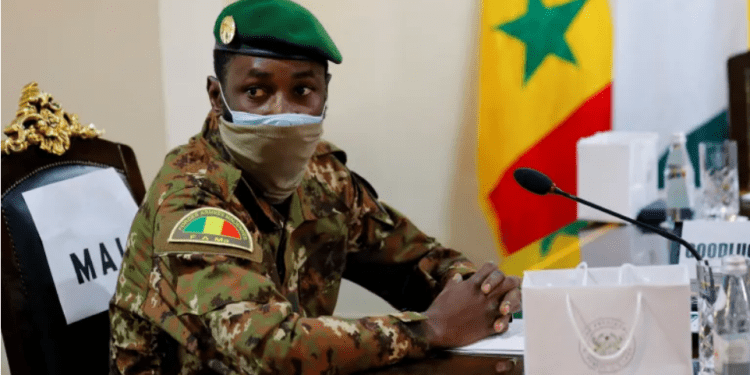Mali’s military government has dissolved all political parties amid growing accusations from human rights groups that opposition leaders have been arrested.
The announcement was made by Assimi Goita, who has held power in the country since seizing control in two military coups in 2020 and 2021. Goita validated the decision in a televised address to the nation on Tuesday.
The dissolution of the political parties follows protests earlier this month calling for the restoration of democratic governance in Mali. On May 3 and 4, demonstrators took to the streets, holding signs with slogans like “Down with dictatorship, long live democracy.” This marked one of the rare public criticisms of the military government, which had previously promised to hold elections in 2022.
A national conference held in April recommended that Goita remain president until 2030, a proposal that has faced backlash from opposition groups and human rights organizations. The military government responded to an upcoming protest scheduled for Friday by issuing a decree that suspended all political activities across the country. This move forced opposition groups to cancel their planned demonstration, further solidifying the government’s control.
Reports of the forced disappearance of opposition figures have been emerging in recent days. Human rights organizations claim that several politicians have been abducted by unknown individuals. On Thursday, Human Rights Watch (HRW) reported that Abba Alhassane, secretary-general of the Convergence for the Development of Mali (CODEM), was “arrested” by “masked gunmen.” That same day, El Bachir Thiam, leader of the Yelema party, was also reportedly seized by unidentified men in the town of Kati, near the capital.
A CODEM member, speaking anonymously, told Reuters that the party had lost contact with Abdoul Karim Traore, a youth leader, and feared he may have also been abducted. The Malian authorities have not yet commented on these reported arrests.
Goita initially took power in August 2020 amid escalating violence from armed groups linked to ISIS and al-Qaeda’s regional affiliate, Jama’at Nusrat al-Islam wal-Muslimin (JNIM). In July 2020, violent protests against the civilian government were harshly suppressed, resulting in at least 14 deaths during a security forces crackdown. Shortly after, the military ousted the elected government, citing its failure to address the growing insurgencies.
In December 2024, HRW reported that Malian soldiers, along with Russian Wagner Group mercenaries, were responsible for the deliberate killing of at least 32 civilians and the destruction of more than 100 homes in central and northern Mali.


